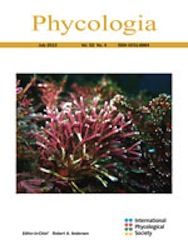According to an article in the journal Phycologia, a recent research study examined a promising freshwater algal strain for possible genetic engineering applications that could make it a viable biofuel. The research, conducted by a research team in Japan, was aimed at reducing the time from research to commercial production of algal-based biofuels.
 The article takes an in-depth look at the genetic structure of a unicellular green alga, Botryococcus braunii, and explores its unique ability to be utilized in the genetic engineering of biofuel development. Botryococcus braunii was initially selected for large-scale biofuel production because of its extraordinary ability to synthesize large amounts of hydrocarbon oils.
The article takes an in-depth look at the genetic structure of a unicellular green alga, Botryococcus braunii, and explores its unique ability to be utilized in the genetic engineering of biofuel development. Botryococcus braunii was initially selected for large-scale biofuel production because of its extraordinary ability to synthesize large amounts of hydrocarbon oils.
Several difficulties were encountered in the initial production and harvesting processes, leaving it by the wayside. However, this latest research reintroduces B. braunii as the perfect vehicle for genetic engineering applications when compared with three other species of green algae, five species of land plants, and eight other phyla species, including bacteria, archaea, fungi, and mammals.
The research focused on the codon usage, or DNA compatibility, of B. braunii with the other organisms. Codon usage for this particular alga is one of the fundamental genetic markers that had not been explored. Codons are greatly affected by the vast amount of guanines (G) and cytosines (C), two of the four nucleotides that make up a DNA molecule. Many green algal species having high GC content, which causes codon usage bias, or poor compatibility, with other organisms. Surprisingly, B. braunii had comparatively low GC content and its codon usage was similar to that of bacteria, mammals, and land plants.
Although further study is necessary, the researchers found that the ability of B. braunii to synthesize hydrocarbons, combined with the newly discovered codon usage and GC content data, could lead to new genetic engineering techniques that could hasten biofuel development and production.

